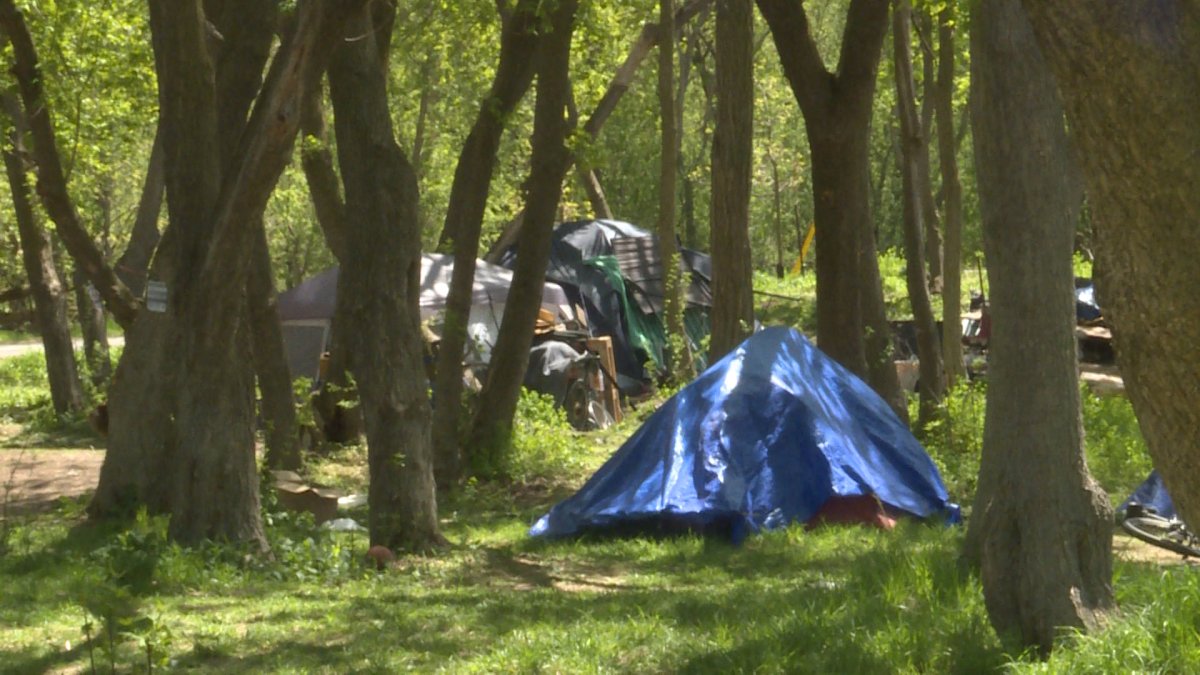Kingston city council has decided to close all public spaces to unhoused campers, after a flood of complaints from residents surrounding the encampments in multiple parks and spaces across the southern Ontario city.

Not only is the bylaw prohibiting tents in public places being reinstated, but campers can be evicted on as little as six hours notice.
“We’ve also then, as a result, reinstituted the encampment protocol,” says Mayor Bryan Paterson. “Which means that we won’t allow camping anywhere on public property, anywhere in the city. But again, people will be redirected to some of the other services that we have available.”
Council had paused the bylaw a month ago while staff worked on solutions to help the unhoused.
Among the options that emerged at a special council meeting was to designate new encampments in a few parks, but council flatly rejected that idea.

Get breaking National news
Instead, council opted to invest money in other homeless-related initiatives, such as more sleeping cabins and emergency shelters.

“We did approve new funding for shelter beds, new funding for up to ten additional sleeping cabins, perhaps in a second location,” says Paterson.
“We think that those are solutions that have demonstrated to work, so we’d rather pursue those routes instead.”
The sleeping cabin pilot project has been hailed as a success by both the city and outreach workers.
One man told council that he’s a graduate of the sleeping cabin program, and has found permanent housing and a job.
“After spending a winter down there, and having the tools I needed – phones, food – all the things I had to do to survive in the woods I could now just put aside,” says Cory, who’s last name was not given, “and use all that time to get back on my feet.”
As for campers who have been asked to leave public parks, the city says other options will be presented to each person on a case-by-case basis.
“Street Outreach and Housing & Social Services staff continue to provide ongoing supports and work with individuals to provide alternative service options, including but not limited to: shelter, access to the Integrated Care Hub, motel/hotel, apartment, medical services, storage and transportation,” says the city in a press release.
Mayor Paterson says the city has spent nearly $18 million over the last two years to help combat the homelessness crisis.
The city now calling on the provincial and federal governments to step in and provide some funding for more transitional housing.








Comments